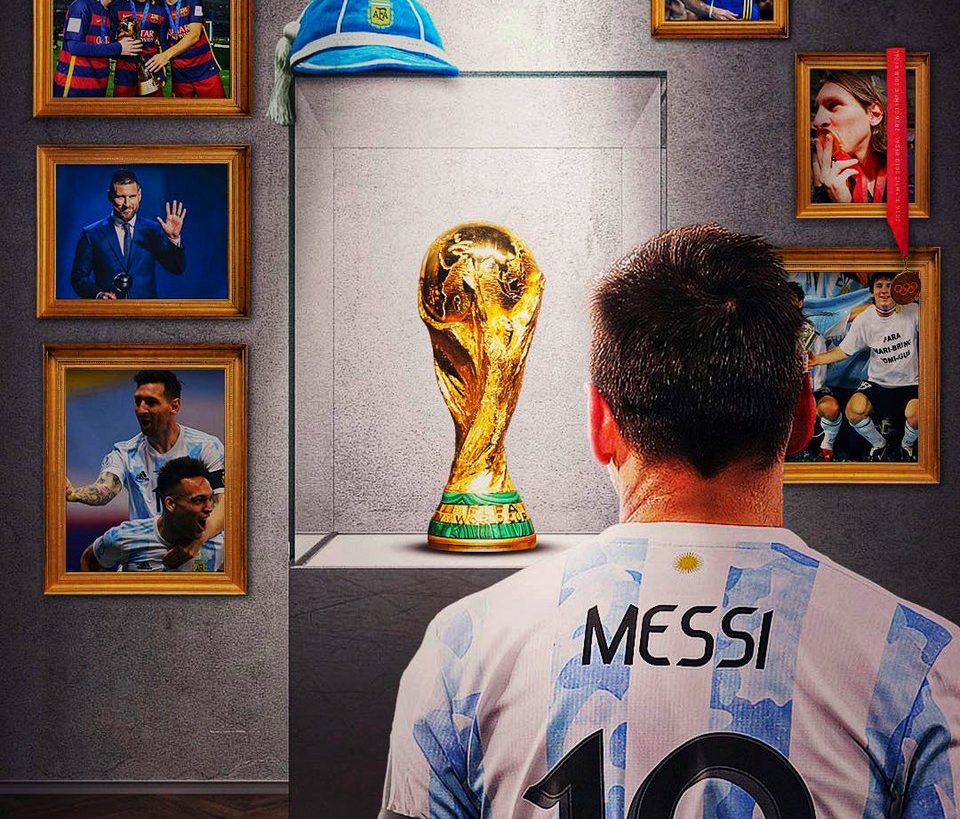As Argentine legend Lionel Messi prepares to hang his boots after the FIFA World Cup in Qatar later this year, we take a look back on his incomparable football legacy.
Qatar’s World Cup next month will be the last of Lionel Messi’s phenomenal career, as the superstar is set to bid farewell to the football’s biggest stage.
The 35-year-old Argentina legend will play in his fifth World Cup, representing his country in hopes of bagging a title he has yet to nail on his incomparable resume.
To many Argentines and football fanatics, Messi’s football legacy must be headlined with a World Cup victory, bringing back decades of missed glory to the South American country.
Argentina has been unbeaten in its past 35 competitive matches this season, and Messi will enter Qatar wishing to lead his team to victory since the late icon Diego Maradona.
2006 Debut
Prior to being labelled a football supernatural by Argentines, an 18-year-old Messi once came off the bench in the Juan Sorin-led squad.
Marking the youngest player to appear at the tournament for Argentina, Messi struck only 16 minutes of playing time against Serbia, which evidently would be the match he scored his first goal of the World Cup.
Conquering Serbia 5-0, Messi was substituted in the game for Maxi Rodriguez in the 75th minute.
Minutes later, the young Messi would nail another point for Argentina, edging the game to a painful loss for the Serbians.
Regardless of a footballer’s capabilities, playing at the World Cup requires minutes, and Messi earned those minutes after the match with Serbia.
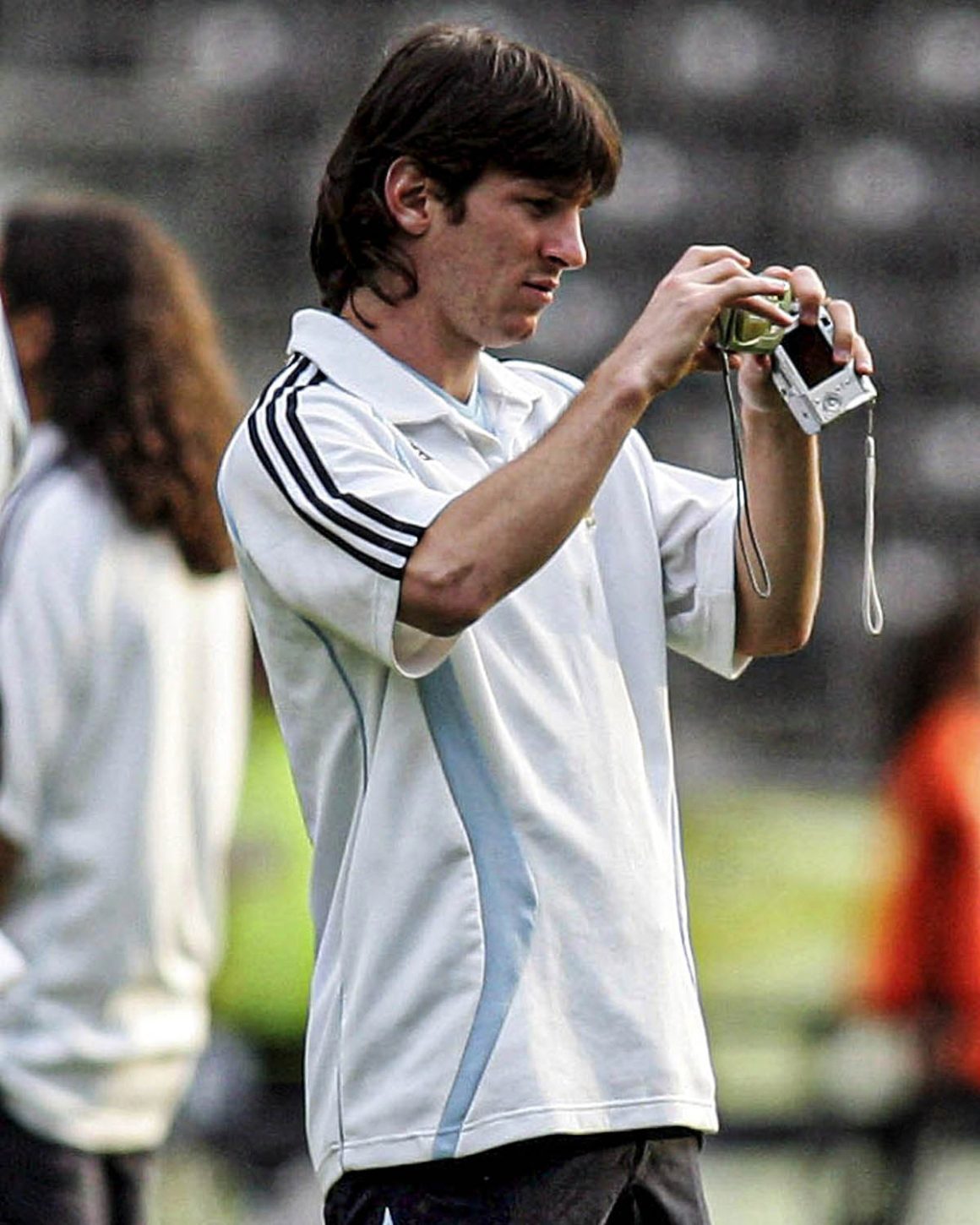
Gerardo Salorio, a member of Argentina’s coaching staff at the 2006 World Cup, witnessed Messi’s transformation with the national team, arguing that the young plater needed to earn his stripes before he could shine.
“The thing was, at that age, you have to sustain that for 90 minutes. I don’t think he was able to do that. In the U20s, yes, he was far too good for that level, but for the seniors, he was just missing a little something; he had to play the amount of time the team needed,” said Salorio in an interview with GOAL.
His stripes were ultimately earned as Messi started in the match against the Netherlands.
Messi soared on the field with quick dribbles but was short of making any goals for that game and the rest of the tournament.
In that moment, Messi needed confidence and to learn the game from outside the pitch, as told by Salorio.
“There were much bigger players than him, like Ayala, Riquelme, Crespo, Cambiasso, who could provide many more things than he could,” Salorio said.
Despite being benched in the match against Germany, in which Argentina would be eliminated in the quarter-finals, Messi’s 2006 debut drove him into becoming the footballer he is today.
“It’s like a car; nobody is Formula 1 champion on the first day, you make gradual progress. That’s what Messi had to understand in 2006. We believed that the following World Cup would be the take-off of the Messi that you see now. The Messi we had was just starting out; it was just the beginning,” Salorio added.
South Africa 2010
In 2010, a 23-year-old Messi returned to the international stage paired with Diego Maradona as the team coach.
The two duos combined their powers, sweeping Nigeria, South Korea, and Greece in the group stages.
Messi played as a facilitator gifting his young teammates assists and filling in the role of a leader.
The pressure was placed on Messi as he had already won the first of his seven Ballons d’Or ahead of Africa’s first World Cup.
Positioned in the midfield, Messi lacked the opportunity to close, yet kept his cool despite meeting a goal drought.
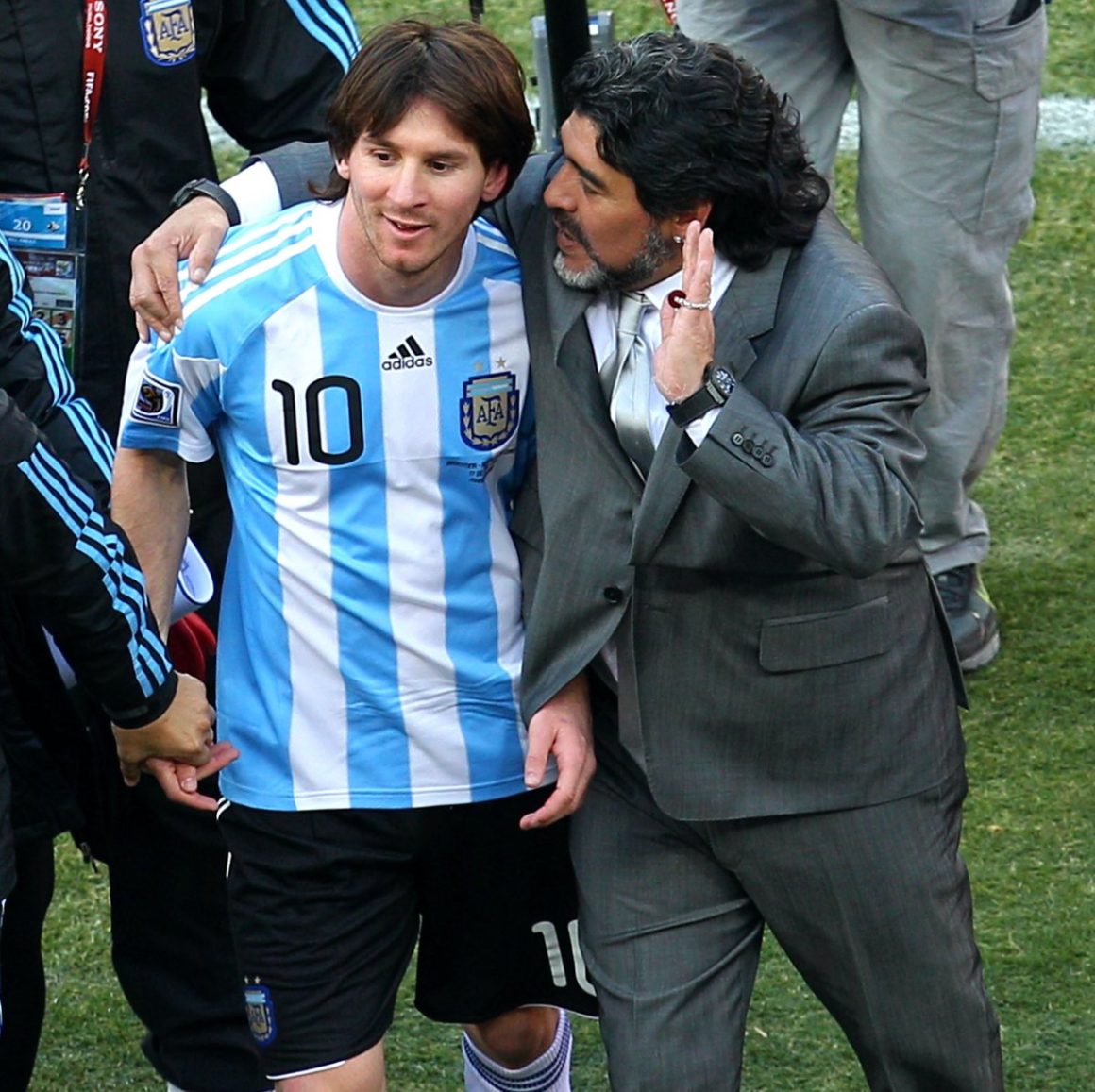
However, the united superpowers of Maradona and Messi were not enough to seize the title in South Africa, as Germany would return to unseat the South American favorites.
Blame can be pointed towards Maradona’s tactics, as Germany would score four goals against a scoreless Argentina.
Fixated on attacking, the Messi squad failed to shift into protecting their box.
Losing in the quarterfinals, Messi left the pitch with a lesson that there is still more to learn before he can dominate the World Cup stage.
Solo effort at 2014
Handling the captain’s armband, Messi sought revenge as he commanded the team through the group stage.
In Argentina’s opening match of the Brazilian World Cup, Messi transitioned from playmaker to attacker as he scored in the 2-1 win over Bosnia and Herzegovina.
Facing Iran, Messi would secure the victory with a lone goal in the last minute, bringing fans around the world to their feet.
Against Africa’s giants Nigeria, Messi led by example as he struck two goals in a hard-fought match that tested the strength of the Argentines.
It was clear to spectators and commentators that Messi had the will to take his team to the finals, but the football world questioned if the rest of his squad could support him on their journey for the World Cup title.
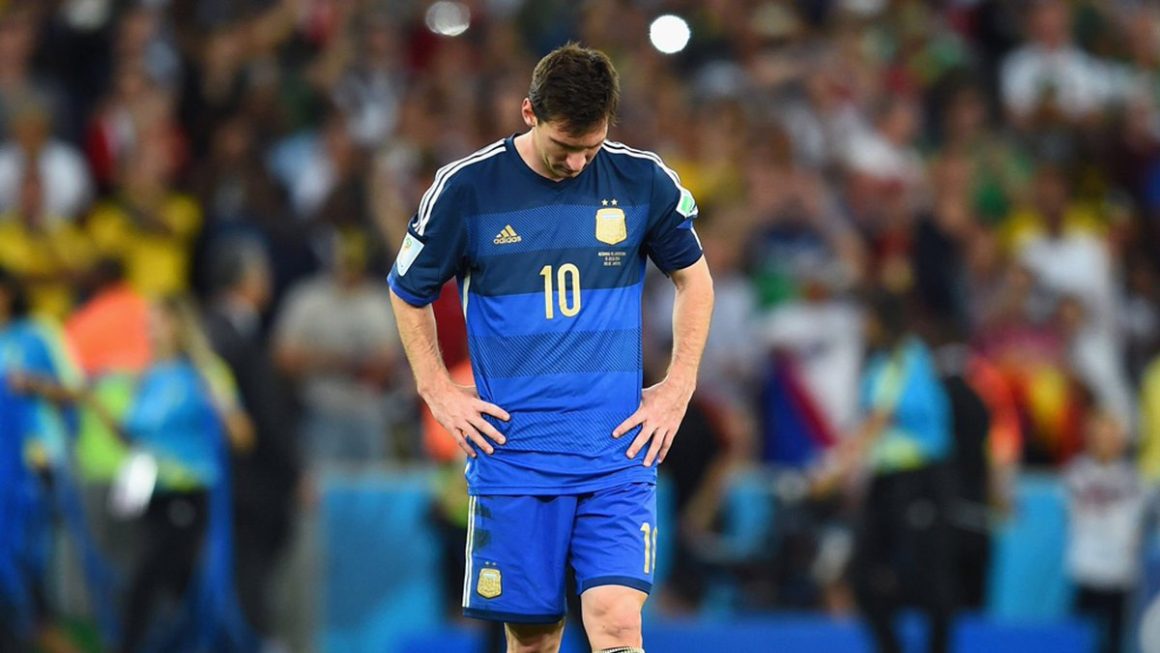
Former Argentine footballer Julian Camino from the 2014 coaching staff recalled the journey when Argentina defeated the Netherlands in the semi-finals as a glimpse of the unseen emotional side of Messi.
“The strongest memory I have is when we beat Holland, you could see Messi there shouting, crying. That’s when you realise what the Argentina shirt means to these players,” Camino said in an interview with GOAL.
“That stayed in my mind because there were so many of us there in the dressing room, hugging each other, shouting that they were going to play a World Cup final with Argentina, something they had been yearning for for so long.”
Destiny brought Argentina and Germany together in the tournament finals for the third World Cup in a row, and fortune desired the Germans to win it again.
Mario Gotze’s winning goal captured the spirit of Messi as he was left visually disappointed for all the effort he put in during the Brazillian tournament.
Argentina scored eight goals in the 2014 World Cup, and Messi was involved in seven of them, scoring four of his own and assisting the rest of his team.
Metres away from the golden trophy, Messi went home instead with the Golden Ball, which was viewed as another metal to the man who appeared to have everything, but a World Cup win.
Disastrous upset 2018
Barley qualifying in the 2018 edition in Russia, Messi’s squad, looked far worse than ever on the World Cup stage.
Coming into Russia, 31-year-old Messi had 15 caps, five goals, and three assists for his country.
Argentina’s campaign in 2018 proved that no man can do it alone, even if you have a five-time World Player of the Year on your roster.
Missed penalties in the opener hinted that a storm was coming early for Argentina’s national team as the group settled for a 1-1 draw with Iceland, who debuted their first World Cup appearance.
The embarrassment wouldn’t stop there as Croatia blew Messi to a close early exit with a 3-0 defeat.
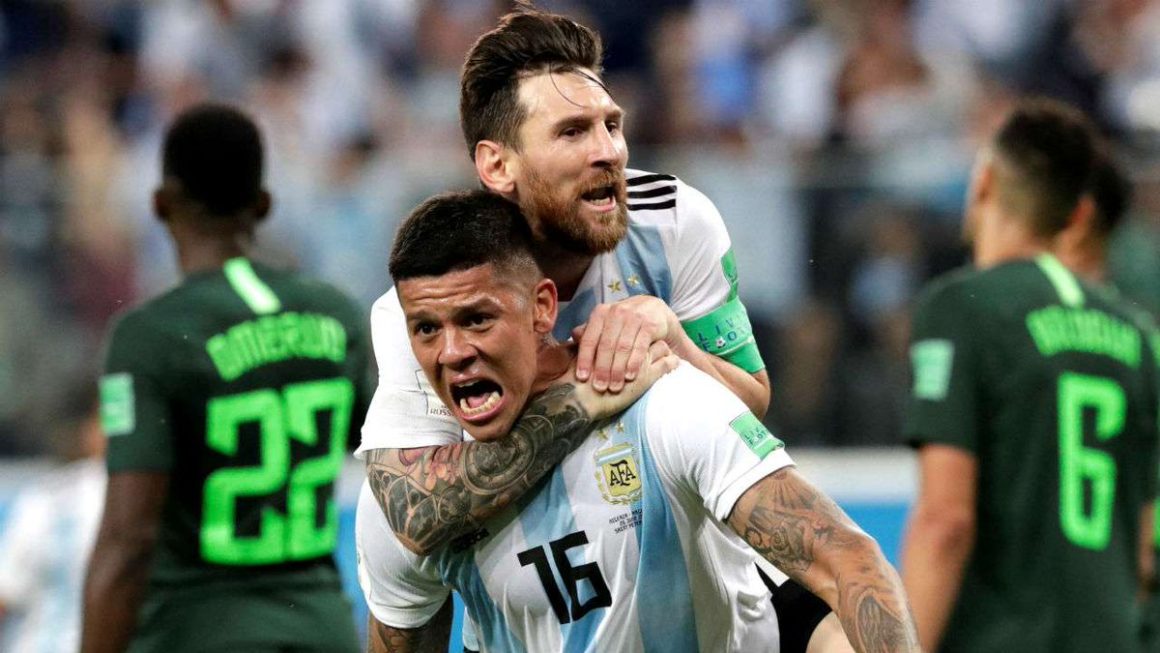
Marcos Rojo and Messi partnered up in a tight match with Nigeria, but a sloppy offense alerted that the team wasn’t prepared for what was to come next.
In the Round of 16, Messi faced his future teammate Kylian Mbappe, who would unravel Argentina’s defence.
Resembling a younger, hungry Messi, 19-year-old Mbappe scored twice, reducing Argentina’s lead to 4-3.
Winning a penalty in a seven-goal thriller, the world was introduced to a rising star and bid farewell to a legend desperate enough to restore forgotten football heritage to his country.

